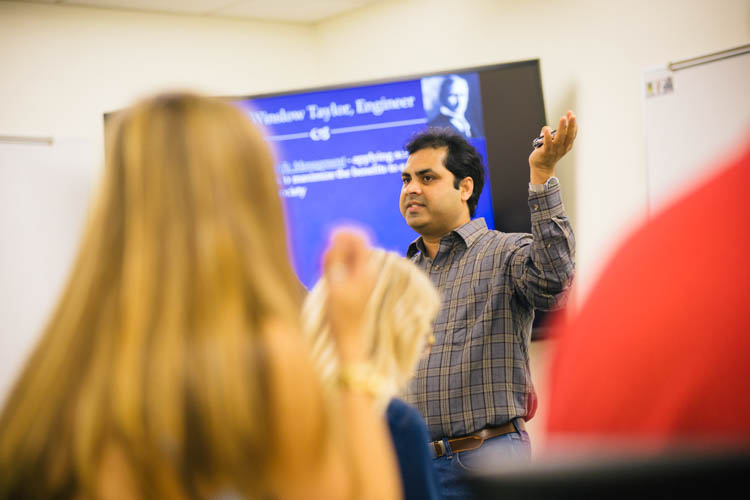

The purpose of a business is to make money.
But as more and more consumers become socially conscious, they are turning to businesses and brands that can not only deliver quality services and products, but also make a positive impact on the world. It’s a tall order, but many businesses are responding to their consumers by recognizing their role in giving back—what is more commonly known in the business world as their “corporate social responsibility.” Regardless of the reason—to make money or simply do good—more companies, nonprofit and for profit alike, are starting to care about the social and environmental impacts of their businesses.
And then there are organizations—called social entrepreneurial ventures—whose primary, and oftentimes only, mission is creating and sustaining positive social change.
The latter is a focus of research by Prof. Chitvan Trivedi, assistant professor in the management department.
“A social entrepreneurial venture employs entrepreneurial tactics to address social problems,” said Trivedi. “Some of these ventures can also be for profit, but their primary goal is to address deep-seated social problems and create positive and sustained social change.”
Prof. Trivedi comes to Gettysburg with a Ph.D. in social ecology from the University of California Irvine. Prior to pursuing social ecology, he earned an MBA and a master’s degree in computer networks and worked in the corporate world. His interest in social ecology grew from his desire to combine his various interests and challenge corporate ideologies.
“I didn’t like how the corporate world was shaping me,” he said. “So it pushed me towards studying the organizations that are making some great changes in society and figuring out the lessons corporations can learn from that.”
Equally important to Trivedi was teaching at a college where the learning mirrored his own broad, interdisciplinary approach to understanding organizations.

“Gettysburg was the perfect fit for me. The management department is unique [compared to traditional business schools] in that it focuses on societal aspects of organizations,” he said.
“Any problem that you think of can be viewed from different perspectives, and it’s important to teach students the value of not being just economically oriented. Organizations are now compelled to balance economic responsibility with social responsibility and environmental sustainability.”
Outside of teaching, Trivedi has also become involved in the Gettysburg Social Entrepreneurship Initiative (SEI), a year-long fellowship started by Jackie Beckwith ’16 for students who are interested in learning about and practicing social entrepreneurship.
The new initiative will facilitate student learning about these ventures as well as hands-on experience in successfully dealing with societal problems. This will be accomplished through discussions led by Trivedi and networking opportunities like conferences and in-person visits to social enterprises. In the future, the initiative will provide students with the opportunity to apply for a grant to successfully mitigate a social problem. The ultimate goal, Trivedi said, is for students to learn everything that goes into making a social entrepreneurship venture successful—proposing a project, engaging the right people (in this case, faculty and campus organizations), and coming up with an effective solution.
“The idea is to create the collaborative capacity at the campus level so we can create a platform to enact social change and also create a network of like-minded people,” said Trivedi.
And eventually these efforts will extend beyond campus to address larger societal needs.
“We want our students to be lifelong learners. We want them to be responsible and informed citizens,” he said. “One way of engaging them in creating these solutions is to ask them to implement what they are learning in class and by bridging that gap between theory and practice. My role as a faculty member is simply to facilitate those linkages.”


